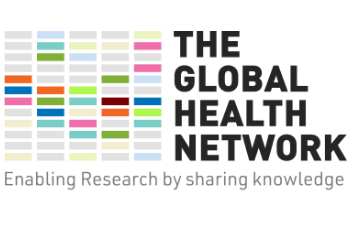Duration:
The estimated time comitment for this course is between 8 - 10 hours.
Progress is automatically saved for each module so the course does not have to be completed in one attempt.
Certification:
A certificate is issued once a minimum of 80% is achieved in the final quiz for each module
Background:
This eLearning course has been adapted entirely from the WHO training manual ‘Ethics in epidemics, emergencies and disasters: Research, surveillance and patient care’ that can be accessed and downloaded from the following website:
https://www.who.int/publications/i/item/9789241549349
The training manual was the result of the collaboration of the WHO Global Health Ethics Unit (GHE) in the Department of Knowledge, Ethics and Research (KER), the Department of Emergency Risk Management and Humanitarian Response (ERM) and the Department of Pandemic and Epidemic Diseases (PED). The development of the manual was led by Andreas Reis (GHE) with assistance from Abha Saxena, Coordinator GHE, and Jonathan Abrahams, ERM department.
For the full course background and acknowledgments please click here
Summary:
This seven module course offers comprehensive training exploring the wide range of ethical issues faced by health professionals and policy makers working in the context of epidemics/pandemics and disaster situations, focusing primarily on the key areas of research, surveillance and patient care. This free to access course aims to provide clear background knowledge of the key subject areas and uses case studies as an effective way to explore the topics via realistic scenarios.
Objectives:
Upon completion of the course, you will have an understanding of:
- Ethical principles and requirements when conducting research and surveillance during a public health emergency
- The procedures governing an ethics review within a public emergency situation
- The possible harm and benefits to individuals and communities arising from conducting research within a public health emergency setting
- The ways in which normal standards of care and treatment are affected during a public health emergency
Course Contents:
Introduction and Acknowledgements
Please download your certificate from your profile page once a minimum of 80% is achieved across all 7 quizzes. For any further information visit our FAQs page.
Your feedback is greatly appreciated; please take a couple of minutes to tell us your thoughts on this course:
Resources:
References |
Case Studies |
Further Reading |
Full Training Manual |
Accompanying Presentations |
Glossary |
Course Acknowledgements:
Editorial Team
Andreas Reis
Global Health Ethics Unit, World Health Organization, Geneva, Switzerland
Abha Saxena
Global Health Ethics Unit, World Health Organization, Geneva, Switzerland
Course Developers
Susan Bull
Head, Bioethics, Research Ethics & Review, The Global Health Network, Centre for Tropical Medicine & Global Health, University of Oxford, UK
Anushree Dave
Graduate Student, Biomedical Ethics Unit, Faculty of Medicine, McGill University
Liam Boggs
Training Manager, The Global Health Network, Centre for Tropical Medicine & Global Health, University of Oxford, UK
Lauren Whelan
Training Assistant, The Global Health Network, Centre for Tropical Medicine & Global Health, University of Oxford, UK
Course Reviewers
Jan Nieke
Global Health Ethics Unit, World Health Organization, Geneva, Switzerland
Nzelle Delphine Kayem
Research Associate, Centre for Tropical Medicine & Global Health, University of Oxford, UK

